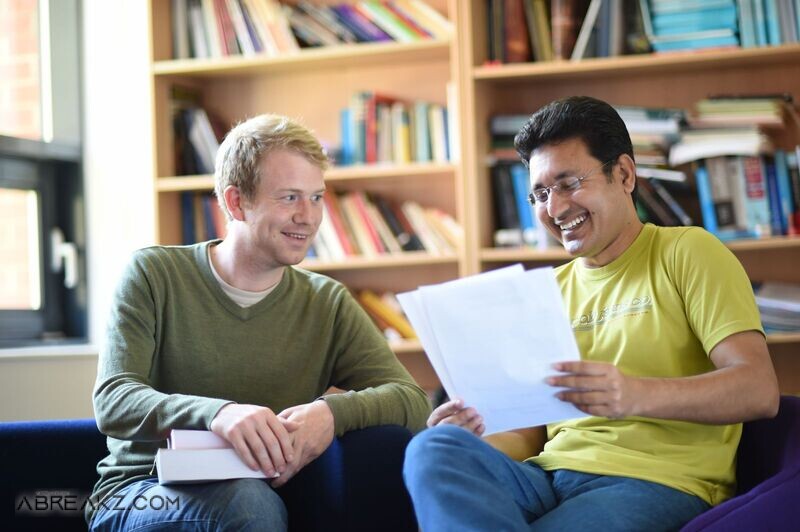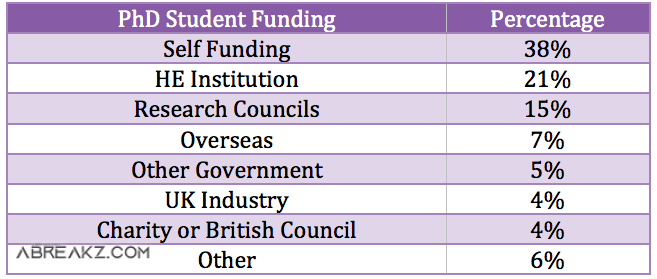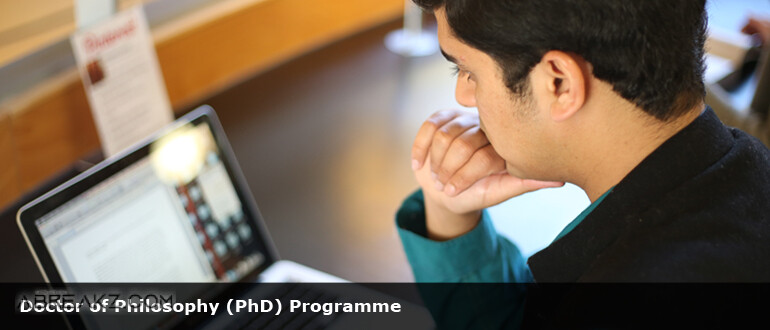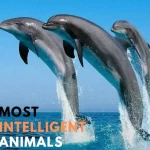Educational leadership is the process of mobilizing and directing the talents and energies of teachers, pupils and parents towards achieving common educational goals. The term is often used synonymously with school leadership in the United States and has replaced educational administration in the United Kingdom.
What does educational leadership mean?
A doctorate degree, or Doctor of Philosophy, is a postgraduate degree awarded by universities. This is the highest academic degree available in the field. A Doctor of Business Administration (DBA) is a postgraduate degree offered by a business school or business school at a university. Completing an online Ph.D. or an online DBA can lead to a significant improvement in your career prospects. For students or professionals interested in leadership, academia, consulting, research and entrepreneurship, a Ph.D. or DBA degree can offer an advantage or the required qualification. Many universities around the world now offer online and Ph.D. DBA programs. The variety of different online Ph.D. and online DBA programs can be overwhelming - don't let it stop you! Start your search by looking at the most popular online Ph.D. and DBA programs now listed below.

Most Popular Fields PhD Programs in Education
Pursuing Best Ph.D Programs in Education
Human Studies
Theology
literature
Ministry
Administrative Studies
Administration
Leadership
Project management
social science
Political Science
International Relations
Sociology
Education Science
educational research
educational leadership
teaching
Business Administration Studies
Business Management
Commercial Business
The strategy
Healthcare
mental health care
psychology
Public Health
Technology Studies
Information Technology
Computer science
Information Systems
Natural Sciences
biology
Maths
Geographical sciences
Engineering Studies
civil engineering
Engineering
electrical engineering
Economic Studies
financial affairs
Economics
Accounting
Educational leadership and the global majority

High Educational Leadership Open Up Many New Opportunities
 Educational leadership capability framework nz
Educational leadership capability framework nz
Developing The Concept Of Higher Education
1- Living within the capabilities of our environment, taking into account the constraints of natural resources, and at the same time helping to improve the environment, and determining that the goods and services that the ecosystem gives us can be used in the best possible way so that a healthy, productive and assured life is achieved in the present and the future.
2- Ensuring a progressive, just and healthy society; With this principle, he wants to produce a multi-ethnic, multi-religious, multi-need society that can live together and provide equal opportunities to all its inhabitants.
3- Achieving a sustainable economy or building a stable and strong economy that can meet the needs of all segments.
4- Ensuring that there is a strong interaction between politics and science underpinned by knowledge and all its uncertainties, along with community attitudes, values and proactive policies. Such developments require an adequate understanding of the shortcomings and potential of current technology.
5- Promoting good governance at all levels, which uses creativity, energy and diversity.
Areas of work were , namely:
- Green environment and landscape.
- The right environment.
- Transportation.
- Waste.
- Water.
- Energy.
6- that information technology is supposed to be environmentally friendly; Where the practice is from the bottom up, not from the top to the bottom, and it is more in the form of negotiation rather than instructions, and the president is not right in all cases and situations! Therefore, the rigid bureaucracy in force is challenged in this open way. There is no vertical order of power and no hierarchy to follow without questioning it, even if a better alternative could be found. Zulkifli contacts any employee who he thinks can be of assistance in solving a problem. Lecturers are often contacted for this purpose; Because the bureaucracy always works to exclude the participation and ideas of people who are not in high positions.
7- In November 2019, the Wellbeing Center for Sustainability and Humanity was established and its main functions are as follows:
- A thriving community: This center works to connect participants at home and abroad to build a thriving community that is expected to bring the global sustainable development agenda to the country or local environment. Subsequently, this center also works to connect stakeholders in building a thriving community that can mobilize their energies to bring a global agenda into the local context.
- Education for sustainable development: The change in society begins with the changes that occur in its education, given that the center also works to empower current and future generations to be able to meet their needs through a balanced and integrated approach with economic, social and environmental dimensions.
- Sustainable Campus: The center also plays a role in creating a sustainable campus, which will be created through the development of the university's infrastructure. Collaboration is being done with various interested parties to create a green campus in all the campuses of the International Islamic University Malaysia. The sustainable campus is a big project with the concept of well-being in different aspects of human life.
8- It seeks to exercise the four basic pillars of education as revealed by the United Nations, which are:
Learn to understand, learn to do, learn to live together, learn to be.
- Learning to understand is done by combining a sufficiently broad knowledge with the opportunity to study a number of topics in greater depth.
- Learn to do; Not only the acquisition of functional skills, but also on a broader scale includes skills for dealing with different situations and teamwork.
- Learn to live together; It is by building an understanding of other human beings and appreciating the interconnectedness of its members, managing projects together, and learning how to handle conflicts in a spirit of respect for universal values and mutual understanding.
- Learn to be; By improving one's personality, the ability to move more independently, based on personal assessment and responsibility. Education must take into account aspects of a person's potential, namely memory, thinking, aesthetic feelings and communication skills.

educational leadership vs curriculum and instruction
British University in Dubai Welcomes New Students
Dubai, United Arab Emirates: The British University in Dubai organized an introductory week in which it welcomed new undergraduate and postgraduate students. The students enrolled in the various university programs in the fields of business administration, education, law, engineering, computer science and information technology were welcomed and introduced to the campus where they met the university director, Prof. Abdullah Al Shamsi, the general registrar and chief administrative officer, Mr. Hugh Martin, and heads of departments at the university.
The students were briefed on the facilities and services provided by the various departments. They also met with the heads of the teaching programs in introductory sessions related to their programs. They were also introduced to the services provided by the Doctoral Training Center to students during the years of study in terms of support, training and advice.
Professor Abdullah Al Shamsi welcomed the new students by saying: "We are very pleased to welcome you to the university and assure you that you will receive our full support all the time and we will help you achieve your goals, God willing, through a successful educational journey." The Registrar General highlighted the importance of critical inquiry, quality and independent learning in the British model of higher education, and encouraged all students to challenge, question and evaluate throughout their studies and beyond.
The university will continue to diversify its programs to be able to offer the best options for students seeking education in the United Arab Emirates. All BUiD programs are accredited by the UAE Ministry of Education, and the university has recently obtained accreditation from the Quality Assurance Agency for Higher Education in the UK (QAA).

About the British University in Dubai
The British University in Dubai was established in 2003 by government law. It is a leading university in the Middle East in the field of postgraduate research and offers a high level of education, training and research. It also provides an important environment and resource for both young professionals, distinguished academics, corporate managers and aspiring leaders from various fields.
The British University in Dubai is a local university with distinction, licensed by the Ministry of Education - Higher Education Affairs in the United Arab Emirates and globally recognized for the level of quality higher education that is equal to British standards thanks to its association with British universities, including the University of Edinburgh, the University of Manchester, and the University of Glasgow.
The British University in Dubai offers full- or part-time research in the field of masters and the university offers PhD programs in education, doctor of philosophy in education, doctor of philosophy in project management, doctor of philosophy in architecture and sustainable built environment, doctor of philosophy in computer science and doctor of philosophy in business administration. It also offers master's programs in the following fields: Education, Banking and Finance, Informatics (Knowledge and Data Management), Project Management, Construction Law and Dispute Resolution, Sustainable Design in the Built Environment, Master of Business Administration, Master of Structural Engineering, and Master of Engineering Management. The university also offers bachelor's degree programs in the fields of management, engineering and computer science, including the first program for artificial intelligence.
The British University in Dubai is a non-profit university that has recruited academic experts to develop programs tailored to the region that test and stretch the limits of knowledge, absorption and research.
The founders of the university are: Al Maktoum Foundation. Dubai Development and Investment Authority, Rolls-Royce, British Business Group and National Bank of Dubai. The University Council is chaired by His Highness Sheikh Ahmed bin Saeed Al Maktoum.
The British University in Dubai works in cooperation with leading organizations and institutes such as the Knowledge Fund Foundation, which is a major contributing partner, as well as Atkins, the Ministry of Education, government agencies, and academic and practical development bodies in the public and private sectors in the United Arab Emirates.
- instructional educational leadership youtube videos
- educational leadership values
- educational leadership vision







































